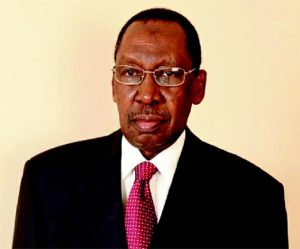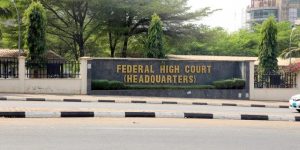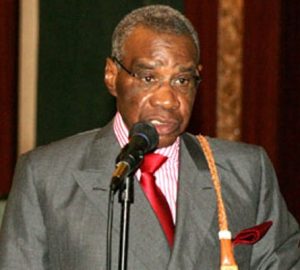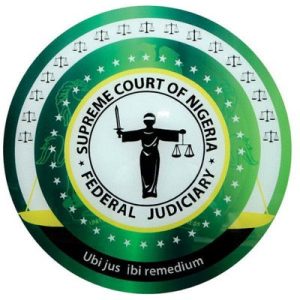By Martin Ihembe
The Nigerian judiciary has come a long way. It survived the onslaught of military dictatorship where decrees superseded court judgments. Even at this, members of the Bench were distinguished jurists, some of the finest in Africa and beyond. Despite the authoritarian environment they found themselves, their commitment to upholding justice was exceptional. At the turn of a new democratic era in 1999, the Bench was found wanting in upholding justice on disputed electoral matters. In my view, the Justice Muhammed Uwais (as he then was) Supreme Court did not serve Nigeria well on this matter. Things turned around under Justices Alfa Belgore, Idris Kutigi, and partially under Aloysius Katsina-Alu, as well as Dahiru Musdapher and Mariam Aloma Mukhtar. Under their leadership, we saw an activist Supreme Court which gave pro-democracy judgments in highly charged political cases, even those involving the presidency. One cannot say much of Justice Mahmood Muhammed’s tenure as head of the apex Court, but the rot in the judiciary became endemic under Nkanu Onnoghen; and was heightened under Ibrahim Tanko and Olukayode Ariwoola.

Is Justice Lawal Uwais guilty as charged?
It is no longer news today that public confidence in the Nigerian judiciary is at its lowest ebb. With the excessive judicialisation of politics in Nigeria, the cheapest thing one can readily secure without hassle from superior court records in the country is frivolous interlocutory injunction; especially in highly charged political cases. While there are a plethora of such cases, I will briefly do a rundown of a few instances in the current democratic epoch.
Former Governor Mr Peter Odili. Odili’s name is equivalent to “perpetual injunction.” After he left office as governor in 2007, the Economic and Financial Crimes Commission (EFCC) initiated criminal action against him “based on facts bordering on corruption at the disposal of the Commission.” Following this, Odili approached a Federal High in Abuja in 2008, presided over by Justice Ibrahim Buba and secured a perpetual interlocutory injunction, restraining the EFCC from executing its statutory functions relating to the alleged looting of Rivers State treasury during Odili’s administration. Consequently, the EFCC attempted to vacate the frivolous injunction at the Court of Appeal in Rivers State to no avail, as the Court refused to list the application. Vexed by this development, Mr Osita Mba handed a petition to the National Judicial Council (NJC) against Justice Buba’s gross incompetence and abuse of office. However, in its response, the NJC said the petition was “unmeritorious,” and summarily dismissed it. This is how Odili became “Mr perpetual injunction” in Nigeria.
Former Governor Rabiu Musa Kwankwaso. In 2015, a High Court in Kano presided over by Justice Muhammed Yahaya issued an order restraining the EFCC from arresting Mr Kwankwaso from criminal prosecution over alleged misappropriation of N10b pension funds. Similarly, another High Court in Kano presided over by Justice Yusuf Muhammed issued another interim Court order in June 2024, restraining the EFCC “from arresting, detaining, harassing, intimidating, inviting, or in any way infringing on the fundamental rights of” Mr Kwankwaso and seven others. Still in Kano, the Federal High Court presided over by Justice Abdullahi Liman issued an interim Court order in 2023, restraining the Kano Public Complaints and Anti-Corruption Commission (PCACC) from inviting, arresting, intimidating, and harassing former Governor Abdullahi Ganduje (aka “Gandola”) and others from criminal prosecution. Other persons and agencies restrained by this order include the Inspector General of Police (IGP), Kano State Commissioner of Police (CP), Department of State Services (DSS), Nigeria Security and Civil Defense Corps (NSCDC), the Attorney General of the Federation, and the Attorney General of Kano State.

A judicial action site
Mr Bello Matawalle. In 2023, a Federal High Court in Zamfara State presided over by Justice A.B Aliyu issued a restraining order, restraining the EFCC from further inviting, arresting, or detaining former Governor of the State, Mr Matawalle and past officials in his government over alleged embezzlement of N70b meant for security. Elsewhere in Edo State, a State High Court presided over by Justice A.T. Momoh issued an interim order restraining the IGP, Edo state CP, the EFCC and Police Service Commission from inviting, arresting and detaining former Governor Godwin Obaseki and 68 others. What the foregoing actions of heads of superior Courts of record say most clearly is that with money, as a corrupt politician, you can buy judicial protection from criminal prosecution, because there are desperate lawyers to facilitate it, and desperate judges ready to be bribed. The question is: if these politicians were not guilty as alleged, why secure an interlocutory injunction to restrain statutory bodies from prosecuting them of alleged acts of criminality? The unfortunate reality is that the allegedly stolen resources by these politicians which run in billions of naira would have spurred economic development if only they were channelled into the relevant sectors of their respective states.
The foregoing says a lot about Nigeria. It is a stark reminder of the fact that the lofty virtue of upholding justice without compromise is dead in most Courtrooms. It shows the extent of rot in the country’s judiciary as judges shield some corrupt influential politicians who allegedly looted their state treasury blind. It also demonstrates how corrupt judges have elevated the granting of frivolous interlocutory injunctions to the level of “directive principle of state policy.” Moreover, it is worth mentioning that these frivolous Court orders are not limited to shielding corrupt politicians. They also occur in civil matters, specifically, disputed party primaries, conventions, congresses etc. A good example is the issue of forum shopping where Courts of co-ordinated jurisdiction issue conflicting interlocutory injunctions in the aforementioned matters with the same set of facts. This has severely undermined the rule of law. In doing so, judges boldly go beyond the remit of their constitutional power in issuing these ping ponglike injunctions, as amply demonstrated in matters that were clearly not within their jurisdiction. There are a plethora of such cases all over the federation.
This explains why most Nigerian judges/justices have become “judicial entrepreneurs,” or what Justice Kayode Eso (as he then was) referred to as “billionaire judges.” They receive bribes in return for controversial judgments in pre or post-election matters. As I stated earlier, judges do not initiate money-exchanging hands from litigants who want to subvert the course of justice to judges; lawyers do, especially the Senior Advocates of Nigeria (SAN). Please do not take my word for it; Justice Eso echoed this view when he remarked that behind every allegation of bribery against a judge, there is a senior advocate who is a conveyor belt. Furthermore, this has been corroborated by the report of the Independent Corrupt Practices Commission in 2020 which noted that desperate politicians and their legal teams handling election petitions deploy “stupendously high amounts of money offered as bribes to judges by lawyers handling high electoral and political cases.” This affirms my contention about the rot at the Bar, which is equally corrupt as the Bench.

Another ex-CJN, Justice Dahiru Musdapher
As the Court of last resort, the Supreme Court is deeply involved in this disgusting and scandalous corruption which has enveloped the lower Courts in recent times. For instance, its judgment which produced the current Governor of Imo State in 2020 was not based on any known cannon of statutory/legal interpretation. The legal anomalies in that case are too numerous to mention. However, while the veracity of the “mysterious” ballots from the 388 polling units “invented” by Uzodinma was not clearly ascertained by the Court, it still counted them and declared him the winner, when in fact he came a distant fourth in the race. While the Supreme Court is the highest Court in Nigeria with the final word on any disputed matter, it is not above the law. As far as the country’s enabling electoral laws are concerned, it is not within its remit to count ballots. Statutorily, this is the exclusive preserve of the Independent National Electoral Commission (INEC). At best, the apex Court can only ask the INEC to recount or conduct a fresh election if it establishes malfeasance in disputed polling units. Unfortunately, it corruptly usurped INEC’s power and subverted the mandate of Imo people which it was by law, supposed to protect.
The controversial decision of the apex Court in the Ahmad Lawan and Godswill Akpabio primary election petition is another case that severely blighted the image of the Supreme Court. The Court “underreached” its statutory mandate stipulated in section 84(12) of the 2022 Electoral Act when it ruled that it lacked the jurisdiction to entertain the matter. Retired Justice James Ogebe who publicly criticised the Akpabio and Lawan judgments noted that some serving Justices of the Supreme Court also disagree with it. In his valedictory speech, Musa Dattijo Muhammed also reiterated the same criticism on the matter. This suggests that the judgment was a machination of some powerful and corrupt elements at the apex Court. The decision of the lower Courts (High and Appeal) in the Plateau State House of Assembly (HOA) and Governorship election petition produced strange contradictions in statutory interpretation, which was at variance with the unlawful precedent set by the Supreme Court. While the lower Courts quashed the entire primary election that produced the Peoples Democratic Party (PDP) candidates for election as unlawful, including that of the Governor, the Supreme Court affirmed the Governor’s nomination because the law allows him to appeal beyond the Court of Appeal. The inconsistency from the Courtroom is embarrassing and astonishing!! The apex Court based its judgment on the Akpabio case, which itself is not consistent with the provision of section 84(12) of the 2022 Electoral Act. As an astute observer, what I have seen repeatedly from the Bench is that stare decisis has now been thrown out of the widow by the Supreme Court as it fails to recognise its own authority on a matter with the same set of facts.
While some have hailed the appointment of Kudirat Kekere-Kun as the new Chief Justice of Nigeria (CJN), believing that she will halt and purge the endemic corruption in the Nigerian judiciary, I do not share this optimism. Kerere-Ekun was part of the Bench which gave controversial judgments that severely blighted the image of the Supreme Court, some of which include the Akpabio, Lawan, and Uzodinma case. Dele Farotimi has eloquently expressed the foregoing view in his consistent critical opprobrium on the entire judiciary. She was in the system when the judiciary was notoriously filialised and cabalised under the former CJN, Tanko Muhammed and Kayode Ariwoola. In the case of the latter, retiring Justice Musa Dattijo Muhammed accused him of abusing the power of his office during his valedictory speech. As such, there is no guarantee that Kekere-Ekun would be different if she were to oversee the appointment of judges.
 Towing the path of those before him such as Mary Odili, Ariwoola appointed his son and his daughter-in-law as Federal High Court judges, and his younger brother as auditor of the NJC before he retired. Politicians have also influenced the appointment of their wives on the Bench. While no law precludes family members of judges/justices and spouses of politicians from ascending the Bench, the minimum requirement is that the process of appointment should be based on merit. It should be openly televised as done in South Africa, transparent, and competitive where only the best emerge regardless of one’s background. Politicians should be completely shut out of the process while members of the Bench who supervise the appointment should be closely monitored. It is lack of this transparency that occasioned the politicisation of the appointment of judges. This effectively set the foundation for corruption to thrive because when the INEC mess our elections up, these elements who are products of nepotism will be appointed by the President of the Court of Appeal to serve as members of Election Petition Tribunals. Nothing affirms this view more eloquently than the confession of Senator Adamu Bulkachuwa on the floor of the Senate when he openly said he used his wife’s (Justice Zainab Bulkachuwa) position as the President of the Court of Appeal to secure favours (corruptly) for his colleague who had pending post-election litigations. Interestingly, Zainab Bulkachuwa’s daughter, Fatima Aliyu was also appointed as judge of the Federal High Court, Abuja, in 2022, despite criticisms that she lacked the requisite experience. In a way, this explains the source of the corruption we witness in the judiciary.
Towing the path of those before him such as Mary Odili, Ariwoola appointed his son and his daughter-in-law as Federal High Court judges, and his younger brother as auditor of the NJC before he retired. Politicians have also influenced the appointment of their wives on the Bench. While no law precludes family members of judges/justices and spouses of politicians from ascending the Bench, the minimum requirement is that the process of appointment should be based on merit. It should be openly televised as done in South Africa, transparent, and competitive where only the best emerge regardless of one’s background. Politicians should be completely shut out of the process while members of the Bench who supervise the appointment should be closely monitored. It is lack of this transparency that occasioned the politicisation of the appointment of judges. This effectively set the foundation for corruption to thrive because when the INEC mess our elections up, these elements who are products of nepotism will be appointed by the President of the Court of Appeal to serve as members of Election Petition Tribunals. Nothing affirms this view more eloquently than the confession of Senator Adamu Bulkachuwa on the floor of the Senate when he openly said he used his wife’s (Justice Zainab Bulkachuwa) position as the President of the Court of Appeal to secure favours (corruptly) for his colleague who had pending post-election litigations. Interestingly, Zainab Bulkachuwa’s daughter, Fatima Aliyu was also appointed as judge of the Federal High Court, Abuja, in 2022, despite criticisms that she lacked the requisite experience. In a way, this explains the source of the corruption we witness in the judiciary.
With judicial entrepreneurs on the Bench and their associates at the Bar, the rate at which justice travels on highly charged political cases is alarming. This is at the expense of criminal and civil matters pending before superior Courts of record, which explains why the issue of awaiting trial is common in Nigerian Courtrooms. For this reason, “litigants encountering delays in judgment [tend to] resort to bribing judges to get favourable rulings,” Justice Ejembi Eko bemoaned in his valedictory speech.
So far, there is no severe punishment for corrupt behaviour on the Bench despite profound cases of corruption. At the Bar, it seems such is condoned given the deafening silence on the issue. Although there are few instances on the Bench where the NJC bowed to pressure and sanctioned some few corrupt elements amongst them. But as Justice Ejembi Eko (as he then was) said, the sanctions meted on corrupt judges are way below public expectation. Instead of completely breaking, smashing or exterminating the rotten eggs amongst them, they are given a tap on the wrist. This incentivises corrupt behaviour, which is dangerous to development. Justice Samson Uwaifo (as he then was) incisively captured the danger as follows: “a corrupt judge is more harmful to society than a man who runs amok with a dagger in a crowded street.”
In conclusion, I think it will be difficult, if not impossible to address this rot on the Bench and at the Bar because it is deeply entrenched. Furthermore, with the Courts deciding electoral victory after flawed elections, politicians have now realised they can only win elections if they are well connected to judges, hence their interest in influencing the appointments in cahoots with senior judicial officers. But if Justice Kekere-Ekun is serious about judicial reforms, she must start by revising the nepotistic appointments on the Bench because this is a disaster in waiting. The undemocratic nature of the NJC and Federal Judicial Service Commission (FJSC) chaired by the CJN who wields a Leviathanlike power must be reformed. This absolute power allows the occupant of the office to take decisions without consulting other justices, noted Olisa Agbakoba, SAN. I will touch on other reforms in part II.
Martin Ihembe, of the Department of Political Sciences, @ the University of Pretoria, South Africa is reachable via martinihembe@gmail.com.




























